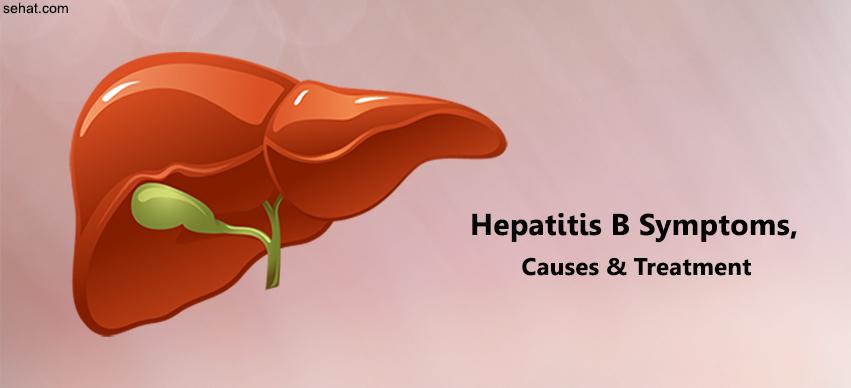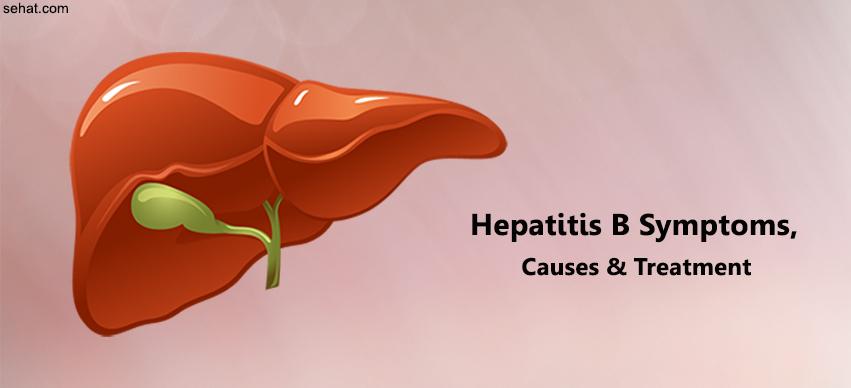
Most of you are well aware of Hepatitis B, which is a serious liver infection that can be spread very easily from one person to another. Did you know that some people who are infected by Hepatitis Bdo not show any symptoms during the initial infection?
What is Hepatitis B?
Hepatitis B is a serious liver infection caused by Hepatitis B virus (HBV) which was earlier known as serum hepatitis. Many people who are infected by the virus do not display any initial symptoms.And, even if you have symptoms you would just feel as if you have the flu. In some people, when the virus lasts for more than 6 months it becomes chronic.
If you develop hepatitis B, it increases your risk of developing liver failure, liver cancer, or liver cirrhosis - a condition which may lead to permanent scarring of the liver. Adults who are infected with hepatitis B and show severe symptoms, recover, but children are more likely to be infected by a chronic hepatitis B infection.
Symptoms
Hepatitis B shows a number of symptoms that may range from mild to severe, and these symptoms make their appearance between one to four months after you have been affected.
You Will Notice the Following Symptoms:
- Abdominal pain
- Fever
- Joint pains
- Loss of appetite
- Dark urine
- Nausea and vomiting
- Weakness and fatigue
- Yellowing of the skin and the whites of the eyes
Causes
We have already seen that Hepatitis B is caused bythe Hepatitis B virus (HBV).
The virus is passed on from person to person-throughblood, semen, or other body fluids.
Some Of The Most Common Methods Through Which the Virus is Transmitted Are:
- Sexual contact: A person can be infected if he or she has unprotected sex with an infected partner, and there is an exchange of blood, saliva, semen, or vaginal secretions.
- Sharing of needles: The virus is easily transmitted through needles and syringes that are contaminated with infected blood. Sharing any part of the IV equipment puts you at a great risk of contracting the virus.
- Accidental exposure: Hepatitis is also a great concern for health and hospital workers who accidentally come in contact with infected human blood through syringes and needles.
- Mother to child: Pregnant women who have been infected with the HBV virus can pass the virus to their babies during childbirth. If the newborn is not infected, it can be vaccinated to avoid getting infected. But, be sure to talk to your doctor if you are tested for hepatitis B and you find yourself pregnant. The same applies if you are planning to get pregnant.
Risk Factors
There are a few things that you should remember about Hepatitis B virus.
Hepatitis B virus spreads by means of contact through blood, semen, or other body fluids from an infected person.
Your Risk of Hepatitis B Increases When:
- You indulge in unprotected sex with multiple sex partners or with someone who is infected with HBV
- You share needles during intravenous transfusions
- You share needles when you do drugs
- You indulge in homosexual activities
- You live with someone who is a chronic HBV patient
- Your job exposes you to human blood
- You travel to areas that have a high rate of infection to HBV
Diagnosis
If your doctor suspects that you have Hepatitis B, he will examine you and will call for blood tests.
The blood tests will confirm if you have the virus in you, and if so whether it is chronic or acute. The doctor may also remove a small sample of your liver and send it for biopsy to know the state of your liver.
Treatment
1. Treatment to Prevent Hepatitis B Infection After Exposure:
If you feel that you have been exposed to the Hepatitis B virus, contact your doctor immediately. If you receive a Hepatitis B immune globulin within 12 hours of exposure to the virus, it may protect you from developing Hepatitis B.
2. Treatment for Acute Hepatitis B Infection:
If your doctor feels that your Hepatitis B infection is acute, i.e., it is short-lived, you may not require any treatment, as it may go away on its own.
3. Treatment for Chronic Hepatitis B Infection:
If you have been diagnosed with chronic Hepatitis B infection, treatment is available to reduce the risk of any infection and prevent you from passing it on to others.
These Treatments Are:
- Antiviral medications
- Interferon alfa-2b (Intron A) - This is a shorter version of a treatment mainly for young people with Hepatitis B who do not want to go through a long course of treatment, or for ladies who would like to get pregnant within a few years. This is an injection that has side effects like depression, tightness of the chest, and difficulty in breathing.
- Liver transplant - In case a person's liver is severely damaged, one of the options of treatment is liver transplant. The damaged liver is removed and replaced with a healthy liver. The transplanted liver could come from dead donors or from live donors who donate a portion of their liver.
Changes in Lifestyle
If you have been infected with Hepatitis B, you may have undertake some changes in your lifestyle and ensure that others are protected from the virus - and do not get infected through you.
- The most important and cardinal point is about making sex safer for others. If you are sexually active, it is important to tell your partner that you have HBV and tell the person the risk of transmitting it to him or her. Use a fresh latex condom every time you have sex. Condoms may reduce, but do not eliminate the risk completely.
- Tell all partners that you have had sex with and askthem to get themselves tested. It should be ensured that they do not have the virus, and if they have, they do not infect others.
- Do not share toothbrushes, razors, razor blades, scissors, needles and syringes.
You should be very careful in life and ensure that you are not infected by HBV, but if you have been infected, do ensure that you do not pass on the infection to others.
Sehat provides list of best Liver Hepatologists in Hyderabad from which you can research and choose the right doctor for your condition.

